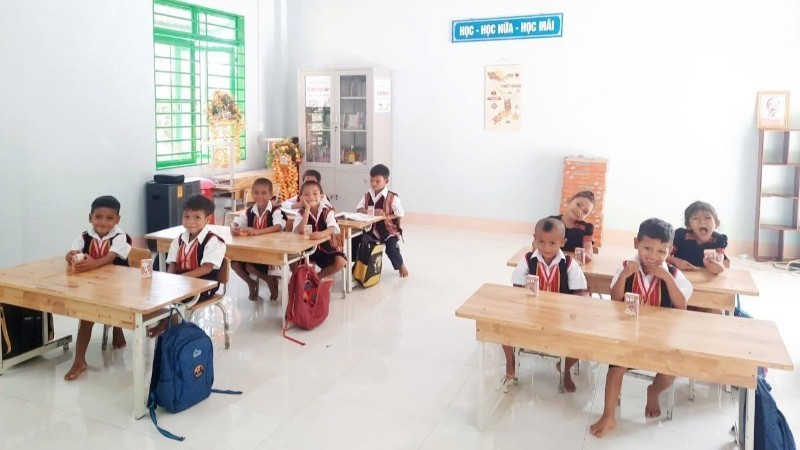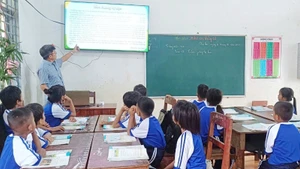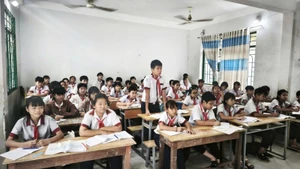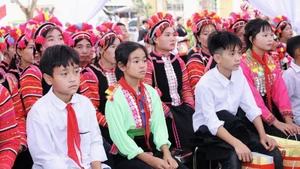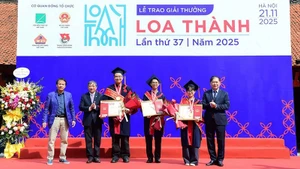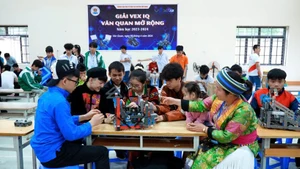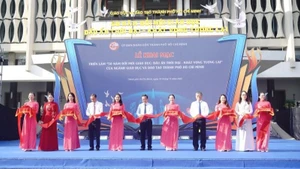In line with the spirit of quickly shifting from “policy-making” to “governance and implementation”, Party Executive Committees and Party organisations from the central to grassroots levels are actively carrying out Resolution No. 71-NQ/TW, with priority given to investing in educational infrastructure in mountainous, border, and island areas.
Accordingly, Party committees and local authorities in border provinces are urgently developing a network of boarding schools in ethnic minority and disadvantaged areas, striving to complete the construction and renovation of 100 schools to be operational by the 2026–2027 academic year.
Da Nang City, one of the localities with the largest education systems in the country, currently has nearly 1,200 schools and about 671,000 students across all levels. Of these, nearly 500 schools meet national standards, with modern facilities meeting teaching and learning demands. However, there remains a significant gap in education quality between central wards and border communes of the city.
Recognising this reality, the Da Nang Party Committee has identified the investment, early completion, and operation of six boarding schools in six border communes as a key measure to concretise the Party’s policy on developing education in remote, mountainous, and ethnic minority areas. The initiative is also expected to generate practical lessons in implementation, resource mobilisation, and provide a basis for replicating the model in the future.
The Standing Board of the Party Committee has therefore instructed the leaders of the six communes to proactively propose concrete plans based on local conditions, ensuring that the newly built school facilities include storm shelters and evacuation spaces for residents in the event of natural disasters such as landslides and flash floods.
Departments, sectors, and local authorities of the six communes — Hung Son, Tay Giang, La Dee, Dak Pring, La Ee, and A Vuong — have closely coordinated, particularly in advising the Party Committee and People’s Committee of Da Nang City. Consequently, Da Nang is finalising investment procedures for appropriately scaled schools to avoid waste, while ensuring teaching and learning needs, compensation and site clearance solutions, and environmental impact assessments in compliance with legal regulations and local realities.
In implementing the Politburo’s policy, Son La Province has proposed the construction and renovation of 13 schools with a total investment of nearly 1.9 trillion VND. The Provincial Party Committee and People’s Committee have established a working group to directly survey and assess the proposed sites for the new schools in border communes. Under the close leadership of the Provincial Party Standing Committee, the construction of combined primary–secondary boarding schools in these areas is being synchronised with human resource planning aligned with the province’s education development strategy.
The province is expected to assign over 1,000 teachers and staff to these 13 schools, requiring high professional qualifications and proficiency in ethnic minority languages. Departments and sectors are working together to develop budget estimates, allowances, and living conditions for teachers working in extremely difficult areas.
Speaking at the ceremony marking the 80th anniversary of the education sector and the opening of the 2025–2026 academic year, Party General Secretary To Lam emphasised that the renewal of education and training in the next stage must ensure equal access and improve public intellectual standards, leaving no child behind, with priority given to remote, mountainous, border, island, and disadvantaged areas.
Realising the Politburo’s policy and the General Secretary’s directives through concrete and practical action programmes carries profound significance, contributing to enhancing education quality and ensuring equal learning opportunities for all citizens.
